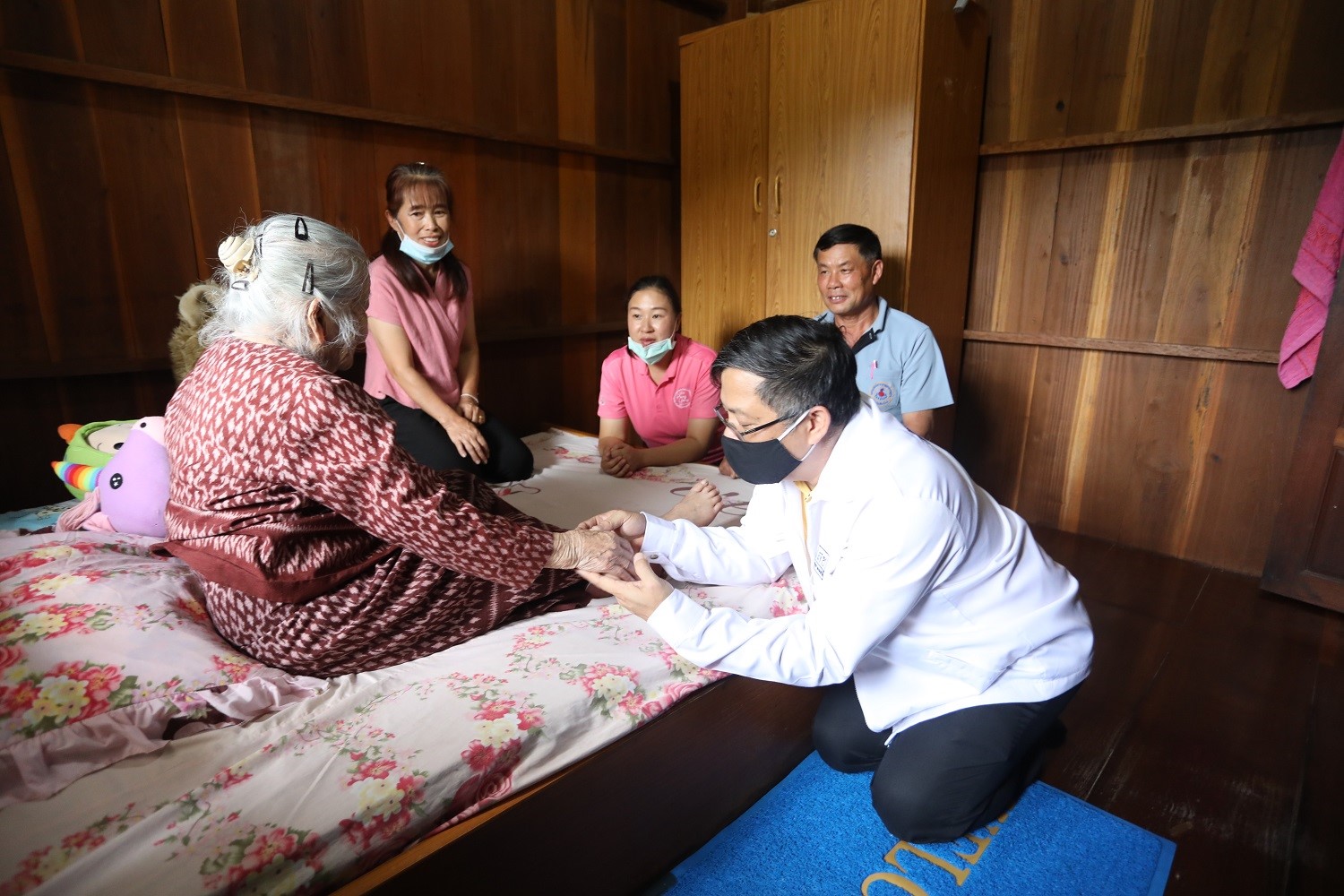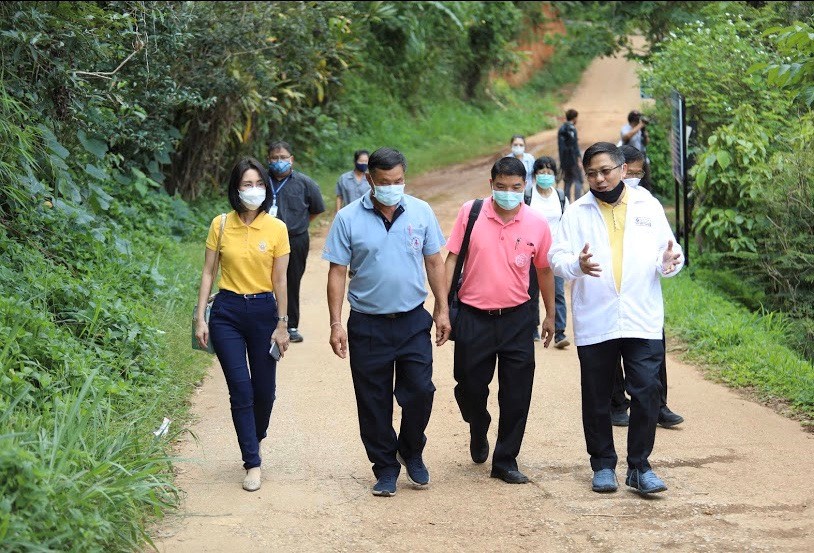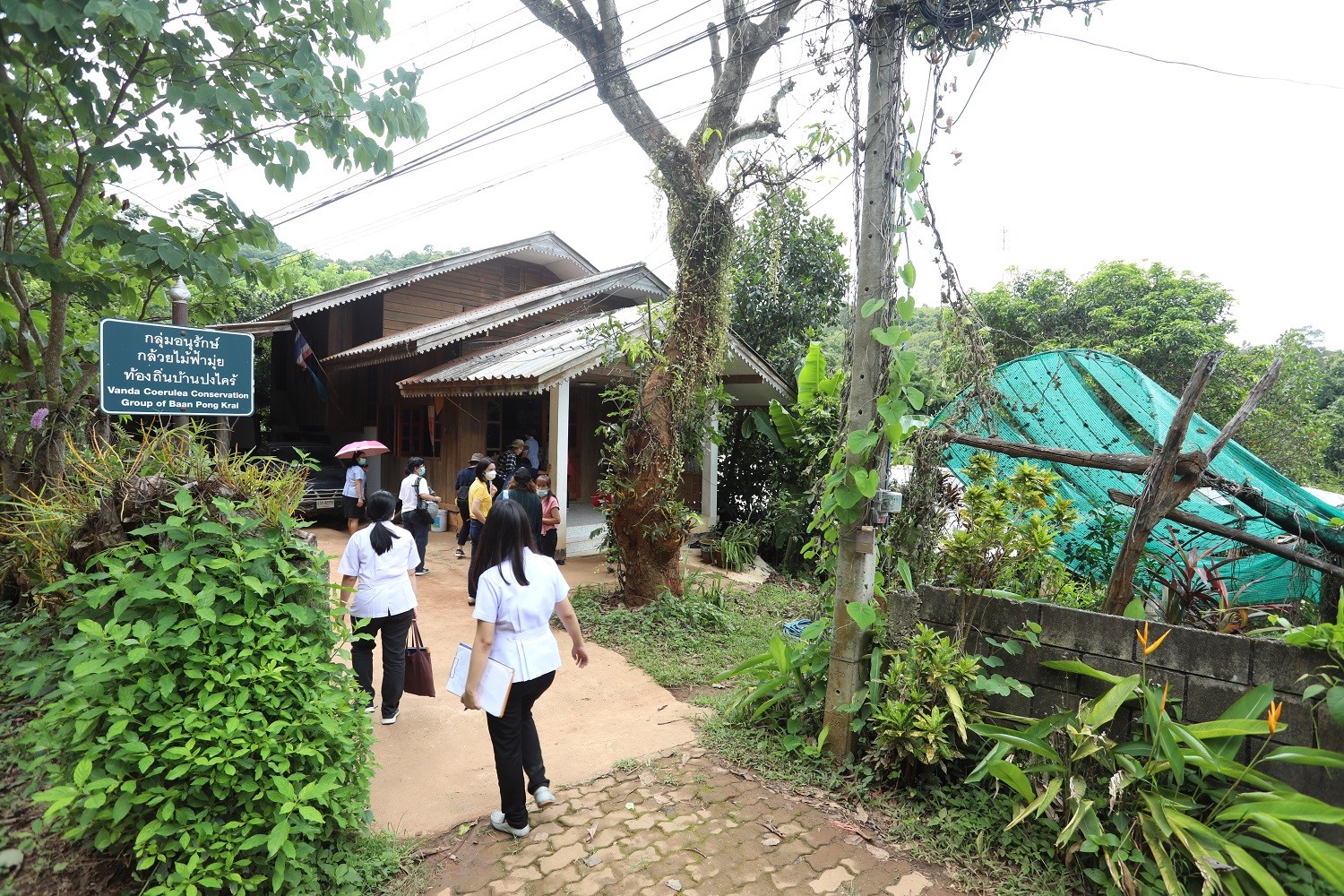
- Home
- DescriptionNews
Home care services for vulnerable people
 Vulnerable people including bedridden elderly persons, people living with disabilities and chronic diseases can access home care services provided under the Long-Term Care (LTC)---a community-based program covered by the Universal Coverage Scheme (UCS).
Vulnerable people including bedridden elderly persons, people living with disabilities and chronic diseases can access home care services provided under the Long-Term Care (LTC)---a community-based program covered by the Universal Coverage Scheme (UCS).Dr Rattaphon Triamwichanon, Assistance Secretary-General of National Health Security Office (NHSO), said that the LTC program was a social innovation that aimed to improve healthcare access for vulnerable people, especially the dependent elderly persons in remote areas.
The program relies on the networks of village health volunteers, many of whom are recruited and trained for becoming "caregivers."
"Village health volunteers have played an important role in coping the COVID-19 pandemic," said Dr Rattaphon. "They are a result of the public health movement that has empowered local communities for more than a decade."
The LTC program involves caregivers who provide home care services and to bedridden and dependent elderly persons, people living with disabilities and chronic diseases.
It is financed by the NHSO, which oversees the UCS, and local administrative organizations that co-fund activities relevant to the program's target groups. The NHSO distributes the fund equivalent to 6,000 baht per head per year.
Pong Yaeng, a hilly subdistrict 28 kilometers away from Chiang Mai city, is one of the piloted areas for the LTC program.
With more than 8,800 populations, Pong Yaeng hosts at least 65 bedridden elderly persons, 26 people living with disabilities, and more than 800 people with chronic diseases including cancer, and kidney failure.
Wan Muang-na, President of Pong Yang Sub-district Administrative Organization, said that his team had operated a care center for elderly persons and dependent people, which were financially supported by the LTC program.
The program's fund was used to hire ambulance and vehicle drivers to take older people to hospitals in the city, also, give a ride to caregivers who have regularly visited remote communities.
Currently, 45 bedridden seniors are looked after by the caregivers. More than 200 village health volunteers have stationed in Pong Yaeng, 11 of which passed the caregiver training. One becomes a care manager, the head of the caregiver team.
Boonseub Srichaiwong, director of Pong Yaeng Nai community hospital, said that his staff had partnered with Pong Yang sub-district administrative organization in operating activities under the LTC program.
The hospital staff has worked with caregivers to asset the health conditions of local residents, and decide a "care plan" that includes the management of medicine home delivery and telemedicine services.



